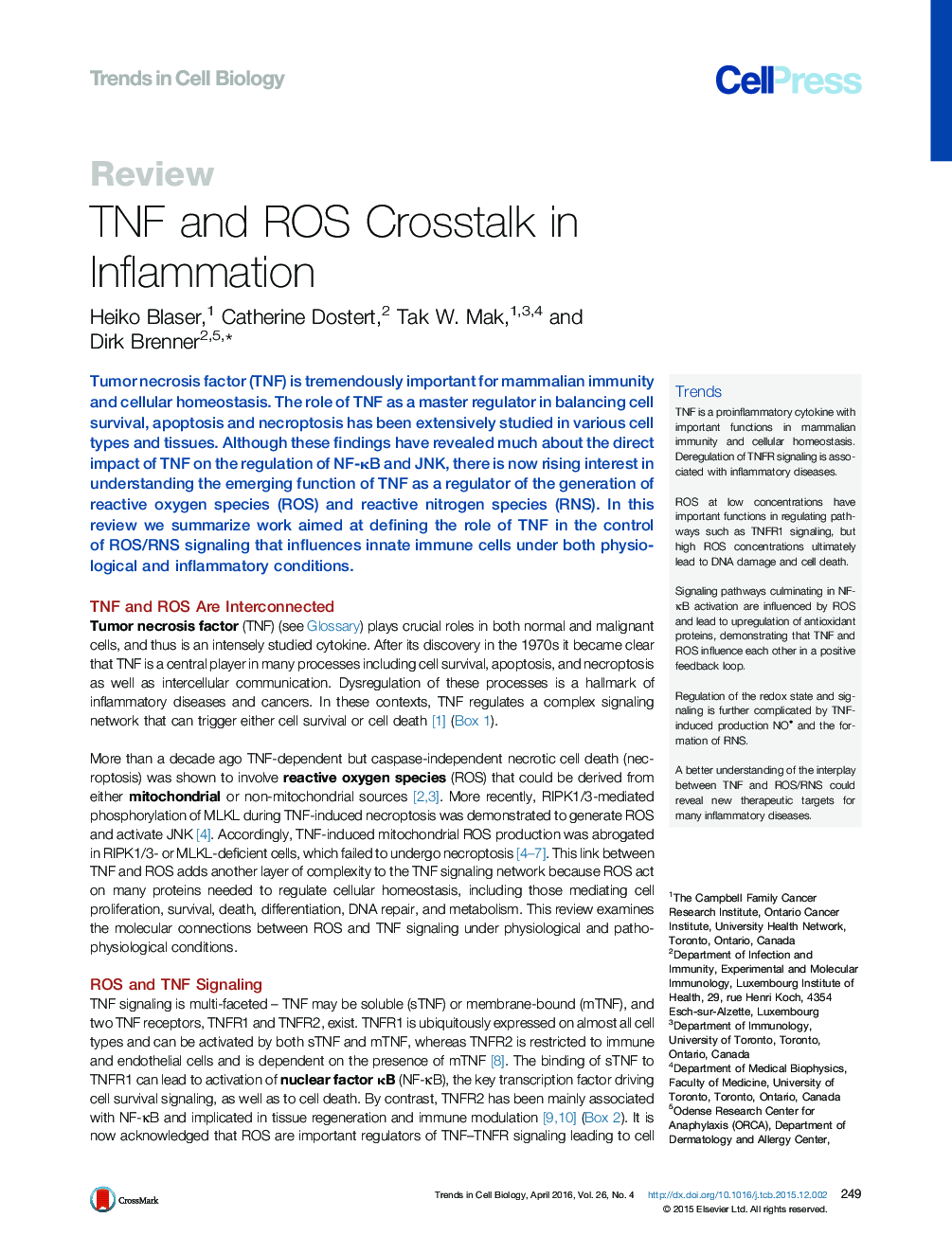| Article ID | Journal | Published Year | Pages | File Type |
|---|---|---|---|---|
| 2204267 | Trends in Cell Biology | 2016 | 13 Pages |
Tumor necrosis factor (TNF) is tremendously important for mammalian immunity and cellular homeostasis. The role of TNF as a master regulator in balancing cell survival, apoptosis and necroptosis has been extensively studied in various cell types and tissues. Although these findings have revealed much about the direct impact of TNF on the regulation of NF-κB and JNK, there is now rising interest in understanding the emerging function of TNF as a regulator of the generation of reactive oxygen species (ROS) and reactive nitrogen species (RNS). In this review we summarize work aimed at defining the role of TNF in the control of ROS/RNS signaling that influences innate immune cells under both physiological and inflammatory conditions.
TrendsTNF is a proinflammatory cytokine with important functions in mammalian immunity and cellular homeostasis. Deregulation of TNFR signaling is associated with inflammatory diseases.ROS at low concentrations have important functions in regulating pathways such as TNFR1 signaling, but high ROS concentrations ultimately lead to DNA damage and cell death.Signaling pathways culminating in NF-κB activation are influenced by ROS and lead to upregulation of antioxidant proteins, demonstrating that TNF and ROS influence each other in a positive feedback loop.Regulation of the redox state and signaling is further complicated by TNF-induced production NO• and the formation of RNS.A better understanding of the interplay between TNF and ROS/RNS could reveal new therapeutic targets for many inflammatory diseases.
